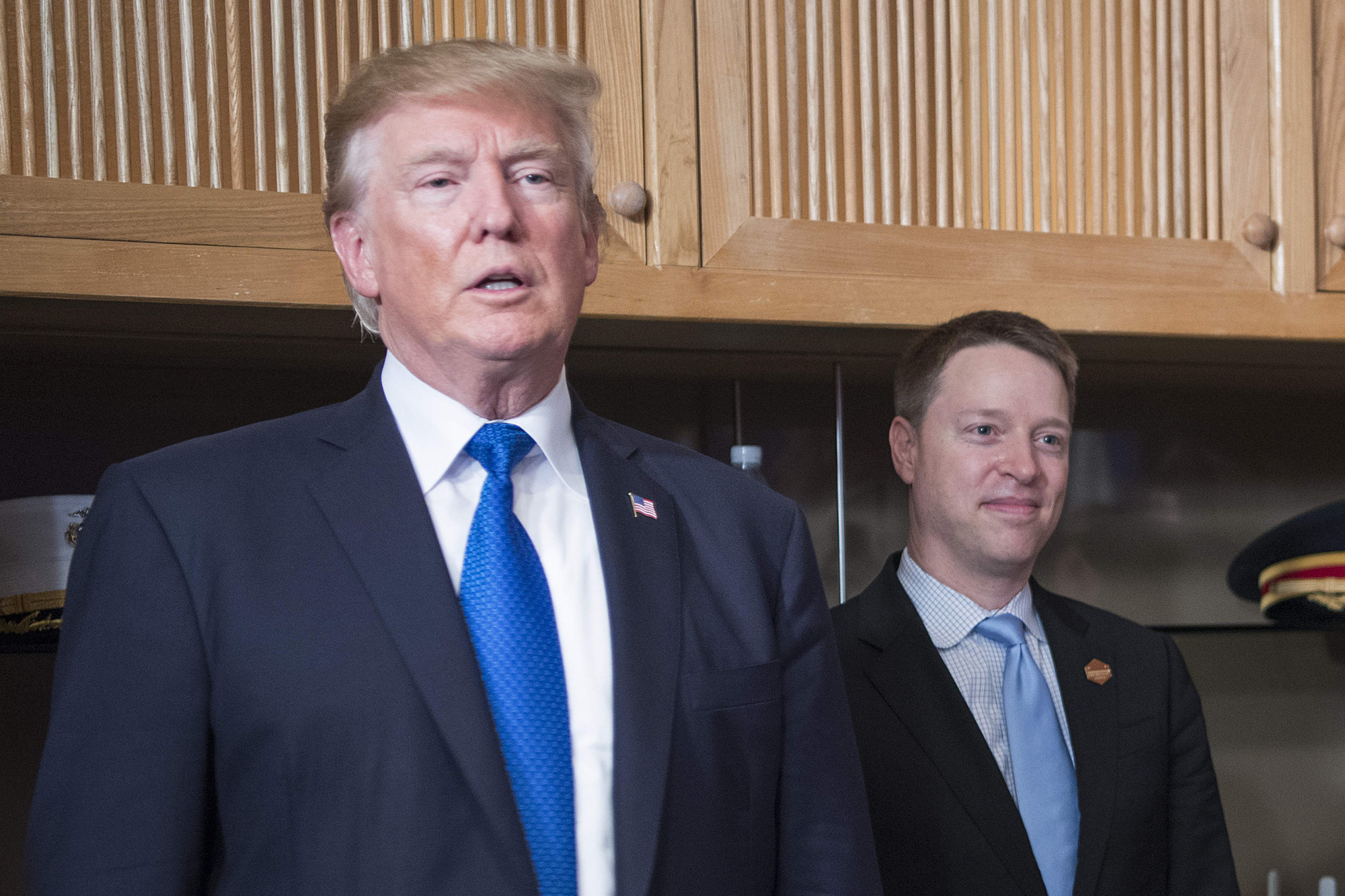US should tighten restrictions on China’s access to key technologies by closing loopholes, Congress told
US export investment restrictions introduced in August to blunt China’s access to key technologies are promising but must be vastly tightened to close loopholes, including financial support for indigenous Chinese alternatives, Congress heard on Wednesday.
“The Biden administration’s draft rules are a good start,” Matthew Pottinger, a former deputy national security adviser in the Donald Trump administration, testified before the House Foreign Affairs Committee.
“Chinese firms commonly dodge US controls with shell companies and complex subsidiary arrays,” said Pottinger, now with the Foundation for Defence of Democracies, a Washington-based think tank. “And it would be better, simpler and less resource-intensive to apply new rules to entire sectors.”
As US-China relations have foundered, the People’s Liberation Army grown more formidable and the lines increasingly blurred between military and civilian use of technology, Congress and the Joe Biden administration have intensified their focus on halting capabilities they can control.
Yet as witnesses called for broader, tougher and more comprehensive rules to deny fuel for Chinese tech development, the hearing underscored the limits of sanction regimes, the cat-and-mouse nature of enforcement and differing objectives of those involved.
The Pentagon, for instance, identifies all Chinese mobile telecommunications companies as linked to the country’s military given the services they provide the PLA.
“On the other hand, if we sanctioned all of China’s mobile telecommunications providers, you would effectively prohibit all American companies from doing business in China, because none of their employees in China could use the telephone,” said Peter Harrell of the Carnegie Endowment for International Peace, a Washington think tank.
“I think we also have to be careful in our application,” added Harrell, who served on the National Security Council in 2021 and 2022 in the Biden administration.
More US-China engagement coming this year despite ‘differences’: Antony Blinken
More US-China engagement coming this year despite ‘differences’: Antony Blinken
A salvo in the US-China tech war came in October 2022 when the White House unveiled plans to limit the export of high-end US semiconductors and related technologies to dozens of Chinese companies. It later expanded this effort to include more companies and technologies.
The White House followed up by pressuring the Netherlands, South Korea and Japan to limit exports of similar technologies and chip-making equipment to China.
In response, Beijing has redoubled efforts to develop its own indigenous versions as well as source technologies indirectly.
Biden has described the effort as a “national emergency to deal with the threat of advancement by countries of concern”, while China has decried the US campaigns as unfair, discriminatory and evidence of a “cold war mentality” taking hold.

Then, last August the Biden administration announced an executive order restricting US venture capital, private equity stakes and other forms of financing in sensitive technologies and products critical to China’s military, intelligence, surveillance, or cyber-enabled capabilities.
Now the House Committee is calling for this restriction to extend further with its Preventing Adversaries from Developing Critical Capabilities Act, introduced in November with bipartisan support.
Other factors have impeded US efforts to exert greater pressure on China using financial and export restrictions, the committee heard on Wednesday.
These include the porous nature of global goods and capital; limited enforcement power or will exhibited by the US Treasury Department and other agencies; and a lack of full-throated support from overseas allies to follow suit.
China to persist with AI development in 2024 despite US chip curbs: UBS
China to persist with AI development in 2024 despite US chip curbs: UBS
Pottinger, a key architect of many trade policies in the Trump administration, argued that banning investments in entire Chinese sectors – rather than focusing on companies that could easily rename themselves – was less resource-intensive for US regulatory agencies, more flexible and easier for American companies to understand.
He told the hearing, titled “Examining the Flow of US Money into China’s Military Might”, that more restrictive American rules should cover all military and strategic technologies.
They could also apply to all forms of financing and seek to block potential affected transactions, not simply review them.
Nor could export restrictions alone impede China’s ability to develop indigenous technologies, Pottinger added, saying they must be accompanied by strong capital restrictions.
“We’re at a juncture now, where the scales of global power are beginning to tip towards America’s adversaries in part because of the leverage that we are providing them,” he said.
US lawmakers ask Biden administration to bar investments in China’s Quectel
US lawmakers ask Biden administration to bar investments in China’s Quectel
“American know-how and capital, our seeds and fertiliser, have helped foster the growth of China’s military.”
But he also conceded that overly broad export restrictions had their limits. “Sometimes it can be overkill or inappropriate,” he added.
The stated priorities of the hardline committee, led by Republicans since last year, include halting the Chinese Communist Party’s “malign activities”, increasing the pace of weapons deliveries to Taiwan, forcing US bureaucracies to take a tougher line in countering China and holding Beijing more accountable on its human rights record.
“The Chinese Communist Party’s goals and actions are a clear and present danger to the security interests of the United States and our allies,” Michael McCaul, a Texas Republican who heads the committee, said on Wednesday.
“We must understand that whoever controls the best technology will likely prevail in this great-power competition.”

